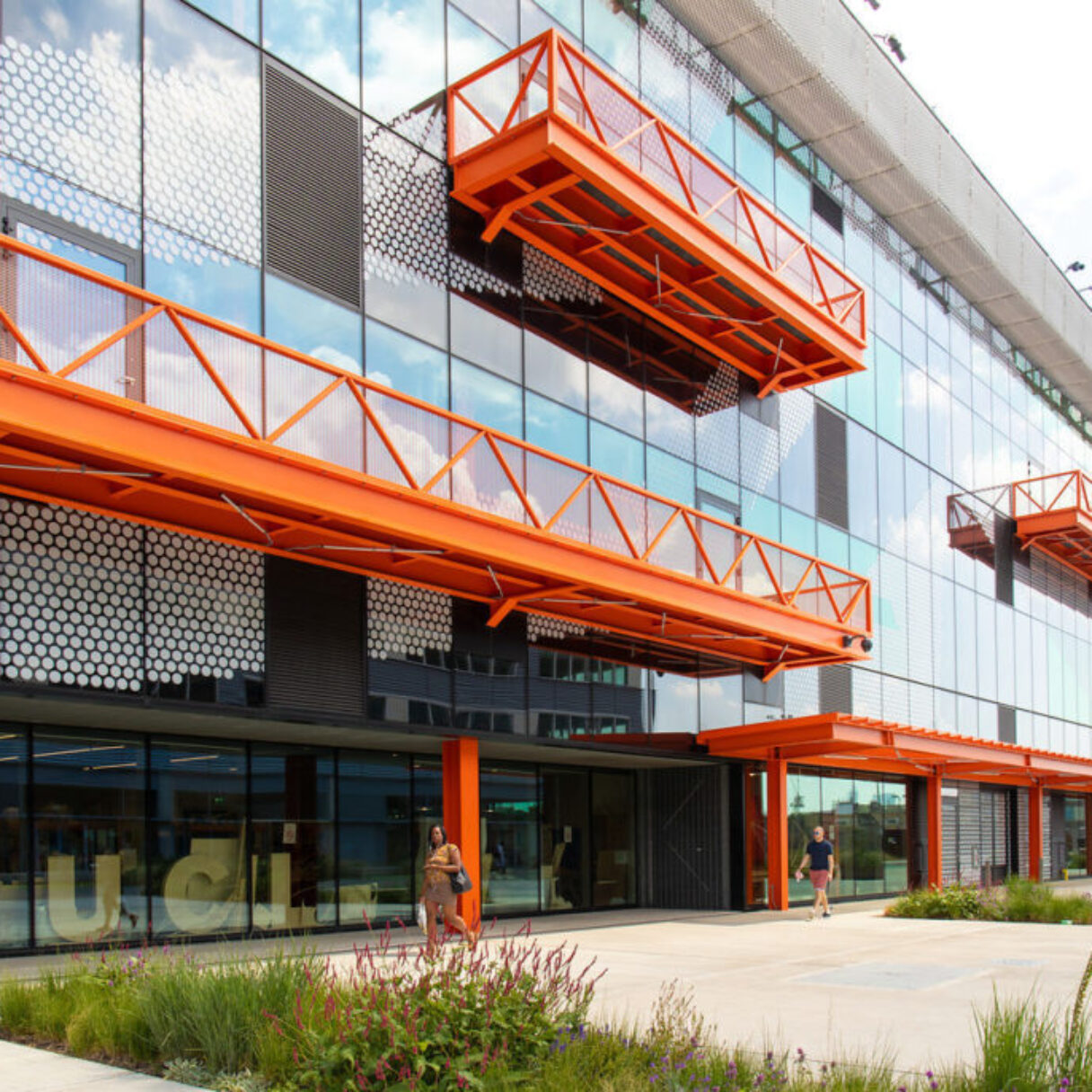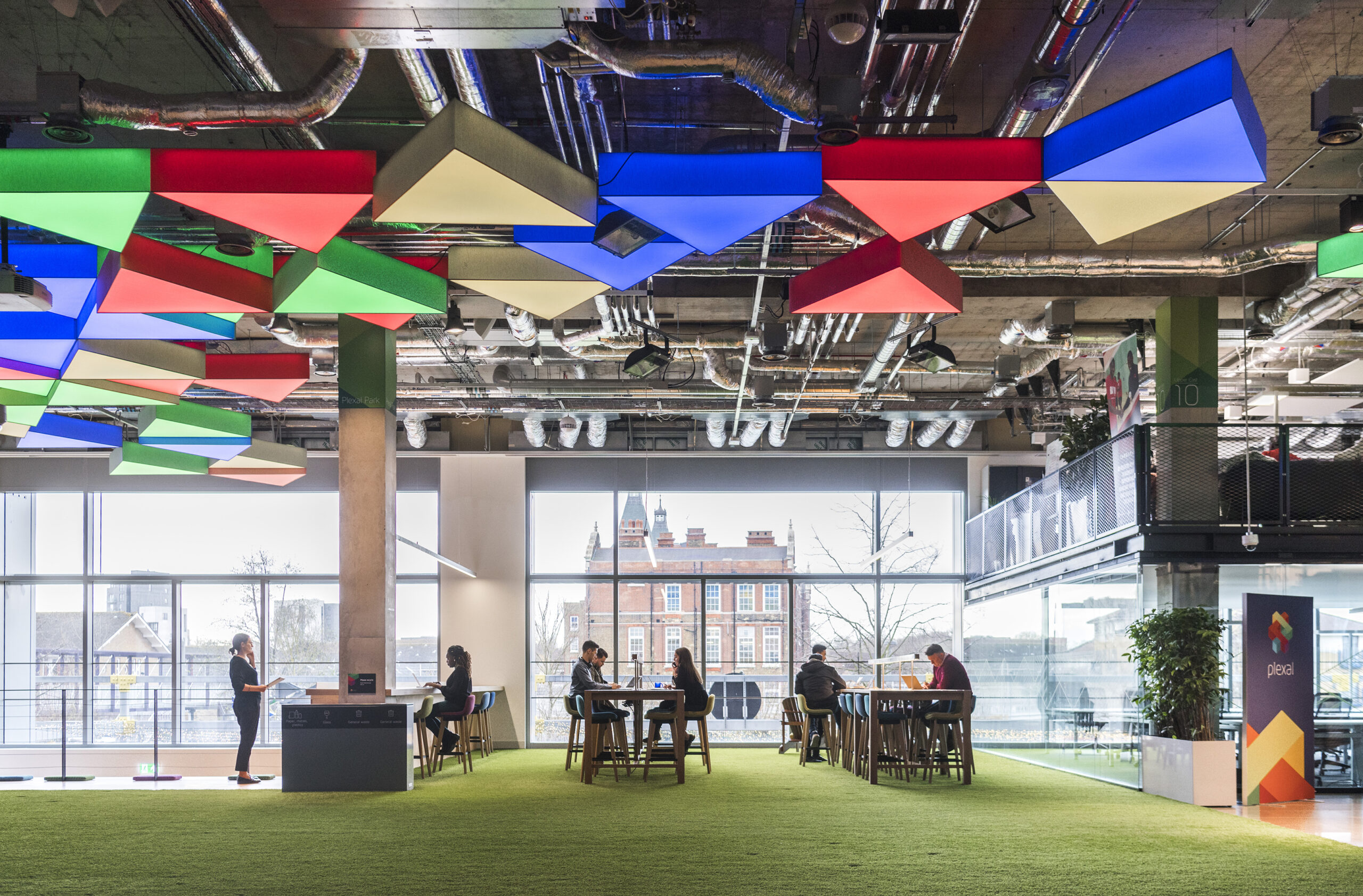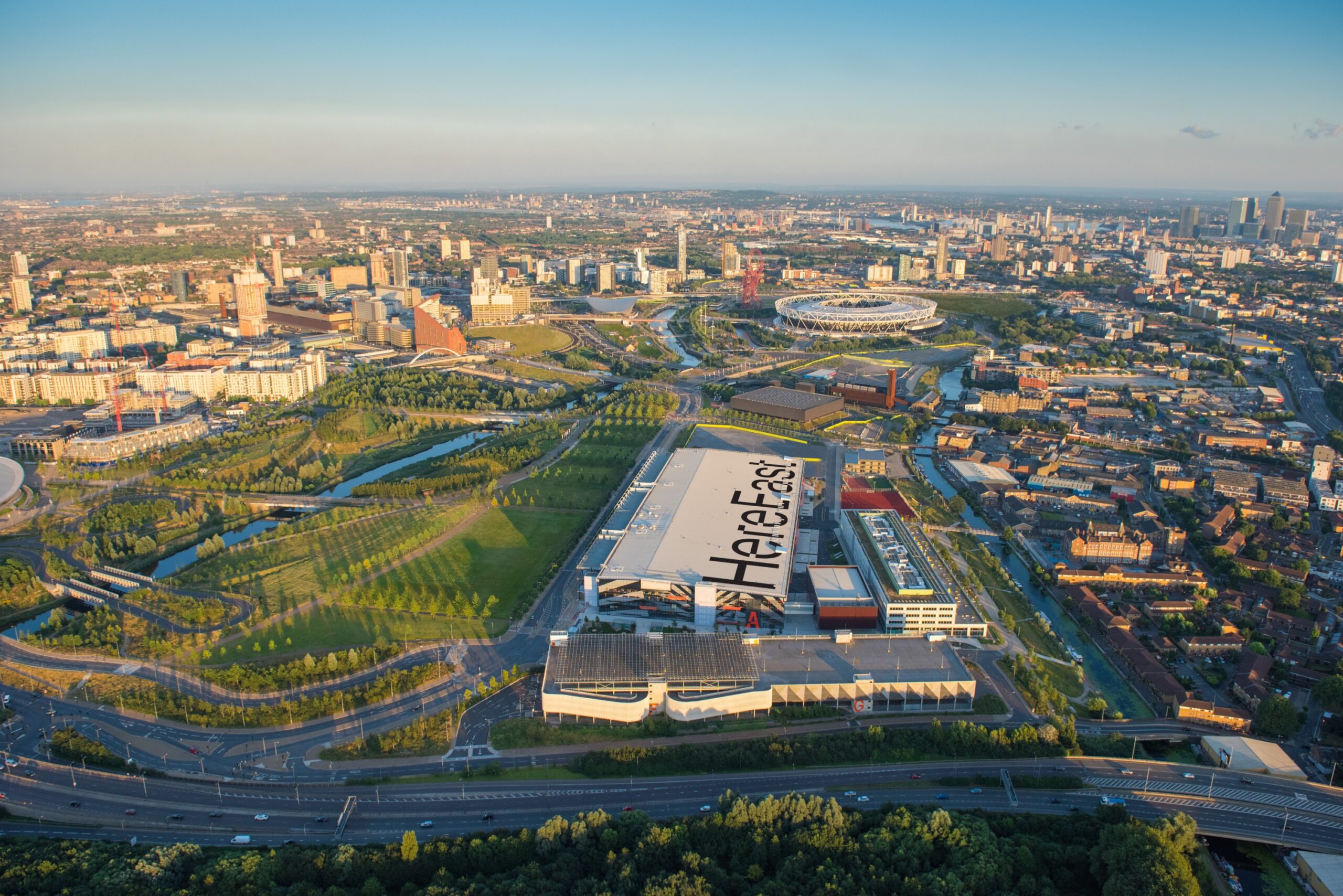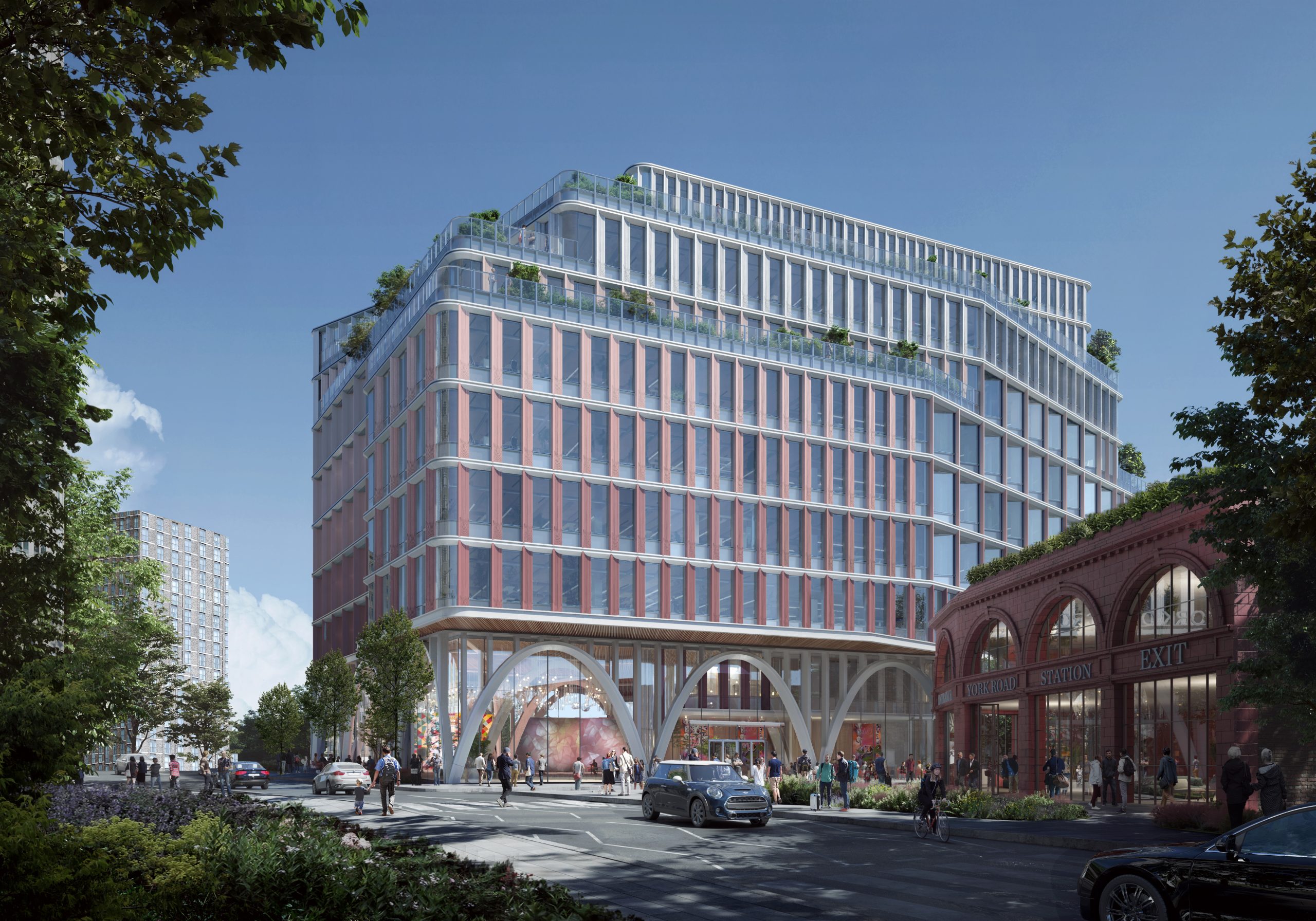
The UK’s most inclusive zone for accessible technology and disability-led innovation to open at Here East
“This exciting new project is an important step in making this a reality and creating new opportunities for disabled entrepreneurs. I’m thrilled that such a diverse group of partners has come together to create this new innovation zone and I look forward to seeing it help new startups grow and thrive.”
“The market for assistive technology is huge, but what many people don’t realise is that designing for the extreme can also be a powerful way to unlock new products, solutions and innovations that benefit everyone.”
- Key focus will be development of inclusion led products and services, putting diverse needs at the centre of design and development
- The East London Inclusive Enterprise Zone (ELIEZ) will feature an innovation lab at Plexal optimised for accessibility
London, 16th September: University College London (UCL), Plexal, and Here East today announce the launch of the East London Inclusive Enterprise Zone (ELIEZ), the UK’s most accessible technology hub.
The Zone is a collaboration between, UCL, Plexal, Here East, Global Disability Innovation Hub, Disability Rights UK, Capital Enterprise, Greater London Authority, Loughborough University, London College of Fashion, UAL, Hackney Council, Ford Mobility, Inclusion London, and the London Legacy Development Corporation (LLDC).
The East London Inclusive Enterprise Zone (ELIEZ) will feature an innovation lab optimised for accessibility. The Lab will accelerate the development of needed products and services through from idea stage to global deployment.
Both the Plexal innovation centre and UCL’s advanced engineering capabilities will be adapted as part of the design process, based on the recommendations of an expert panel led by Disability Rights UK.
The £1.2 million project will receive £500,000 from Research England, match-funded by the partners. This investment is a decisive step in a journey that will welcome further partnerships into an inclusive innovation ecosystem.
Deputy Mayor of London for Business, Rajesh Agrawal, said: “The Mayor and I are committed to ensuring all Londoners can participate in our thriving economy. This exciting new project is an important step in making this a reality and creating new opportunities for disabled entrepreneurs. I’m thrilled that such a diverse group of partners has come together to create this new innovation zone and I look forward to seeing it help new startups grow and thrive.”
Andrew Roughan, Managing Director at Plexal, said: “We’re delighted to be working with UCL to create the East London Inclusive Enterprise Zone (ELIEZ), and fully support its mission to develop disability-led innovation. The market for assistive technology is huge, but what many people don’t realise is that designing for the extreme can also be a powerful way to unlock new products, solutions and innovations that benefit everyone. Our vision for Plexal’s disability-led innovation hub is to act as an ecosystem that brings together innovators with first-hand accessibility challenges, government, industry, tech giants and academia, resulting in the development and commercialisation of new businesses, as well as new ways of fairly distributing the value created.”
Pressing need for inclusive innovation
Roughly 15% of the global population has a form of disability. This is not a small proportion, yet disabled people are frequently excluded from the opportunities available to non-disabled people.
As an example of this exclusion, only one in ten disabled people has access to the assistive technology they require to go to school, work, or have a family. In the UK, the disability employment gap – the difference in the rate of employment of disabled people and nondisabled people – has remained at around 30% for a decade.
There is an enormous international need for disability innovation and assistive technology, but currently a lack of specialised provision in the UK to support entrepreneurship to meet this need. The impact of the East London Inclusive Enterprise Zone (ELIEZ) will be to transform the business of accessible innovation from a cottage industry into a fledgling sector which drives better inclusion and productivity.
Building on the Paralympic Legacy
Dr Catherine Holloway is the Academic Director of the Global Disability Innovation (GDI) Hub, based at UCL – and key to the success of this work. The GDI Hub currently provides exceptional disability-focused teaching, research and innovation as well as delivering a UK Aid funded £20m global programme on assistive technology.
Dr Holloway said: “This exciting project builds on the legacy of the London 2012 Paralympic Games – the most successful Paralympic Games ever. More importantly it will nurture a new generation of diverse entrepreneurs and innovators who are committed to developing a better, fairer future for all people. “Our aim is to launch 100 new startups which will then kick-start the UK’s first inclusive innovation sector and foster inclusive technological, social and economic growth for the benefit of all.”
The project will develop an existing innovation hub within Plexal into a fully accessible, specially designed space for entrepreneurs and businesses leaders who are disabled, or are focused on servicing disabled people.
The East London Inclusive Enterprise Zone (ELIEZ) will also coordinate the delivery of accessible innovation education, training and events.
Local impact
At the national and regional levels, the Mayor of London has identified inclusive innovation as a driver of good growth and productivity, and has made it a key ambition for London’s regional economic strategy. The GLA’s research indicates disabled Londoners are around 27% less likely to be in employment, while a TUC report highlights that disabled people typically earn approximately around £2,730 less per year.
The East London Inclusive Enterprise Zone (ELIEZ) will bring a positive impact on the local east London community, creating thriving new businesses, employment and growth – aligning with LLDC and Hackney Council goals and establishing a more inclusive and prosperous society in and around the Queen Elizabeth Olympic Park.
It will also deliver on the area’s Paralympic Legacy by pioneering products and services, with links being established with the forthcoming Tokyo and Paris Games as well as connections with a network of creative makers in the nearby Hackney Wick Creative Enterprise Zone.
Facilitating inclusive innovation
UCL Innovation and Enterprise works with the university’s diverse community of staff, students and alumni to help them realise the potential of their ideas for the benefit of society and the economy.
The department has a track record of supporting entrepreneurship development – with 68 graduate startups launched at UCL’s BaseKX incubator in the past 12 months, attracting £7.5 million of external investment. UCL Innovation & Enterprise will use its business expertise to support the ambitions of the East London Inclusive Enterprise Zone (ELIEZ) and deliver on the potential of inclusive innovation.
Dr Celia Caulcott, UCL’s Vice-Provost (Enterprise), said: “We believe that universities like UCL must work together with industry, third sector and government to solve complex social, environmental and technological challenges. The East London Inclusive Enterprise Zone (ELIEZ) exemplifies the sort of sustainable, inclusive growth we might aim for in the future. “Improving the lives of all people with disabilities is something we as a society should absolutely be striving to achieve under any circumstances. At the same time, this project has the added benefit of effectively creating new market sectors – stimulating local economies and also increasing overall productivity.”
For More Info Contact:
Matic Boh
Seven Hills
Tel: +44 20 7199 6180
Mob: +44 7746 346 084
matic.boh@wearesevenhills.com
Georgina Bass
Communications Manager
Delancey
Tel: +44 (0)20 7448 1991
Katharine Walsh
Head of Communications
Delancey
Tel: +44 (0)20 7448 1461
Notes to Editors
Contact details
To register interest in the East London Inclusive Enterprise Zone (ELIEZ), visit: bit. ly/ELIEZ-register
About UCL (University College London)
UCL was founded in 1826. We were the first English university established after Oxford and Cambridge, the first to open up university education to those previously excluded from it, and the first to provide systematic teaching of law, architecture and medicine. We are among the world’s top universities, as reflected by performance in a range of international rankings and tables, and are committed to changing the world for the better. Our community of over 41,500 students from 150 countries and over 12,500 staff pursues academic excellence, breaks boundaries and makes a positive impact on real world problems. http://www.ucl.ac.uk | Follow us on Twitter @uclnews | Watch our YouTube channel YouTube.com/UCLTV
About Plexal
Plexal is an innovation centre and coworking space located in the fast-growing Here East technology and innovation campus in London’s Queen Elizabeth Olympic Park. Collaboration is at the heart of Plexal’s approach to innovation. Its innovation team delivers bespoke programmes for organisations like Innovate UK and Transport for London, and specialises in forging connections between industry, academia, investors, startups and scaleups to tackle some of the biggest challenges facing society while getting ideas market-ready. Plexal has been appointed by the Department for Digital, Culture, Media & Sport to deliver the London Office for Rapid Cybersecurity Advancement (LORCA): a threeyear innovation programme aimed at scaling cybersecurity solutions that are needed most by industry.
It’s also launched the Social Inclusion Unit in partnership with My Life My Say (and with support from Mayor of London Sadiq Khan) to scale solutions that can make society and our economy more inclusive while addressing the challenges of underrepresented groups. Members of Plexal benefit from a comprehensive programme of events and inhouse professional services. Members work in areas like mobility, AI, healthtech, cybersecurity, fintech, the Internet of Things, VR, and more. Plexal was launched in 2017 and was founded by clients of specialist real estate investment advisory company Delancey. www.plexal.com
About University Enterprise Zones (UEZs)
University Enterprise Zones (UEZs) are specific geographical areas where universities and business work together to increase local growth and innovation. The zones aim to:
• encourage universities to strengthen their roles as strategic partners in local growth to engage with Local Enterprise Partnerships (LEPs), building on existing capabilities and partnerships
• stimulate development of incubator or ‘grow-on’ space for small businesses in locations that encourage businesses to interact with universities and to innovate
• UEZs have access to business support packages and the specialist facilities and expert knowledge offered by universities. They also work with the Department for International Trade (DIT) to promote inward investment.
About the Global Disability Innovation Hub (GDI Hub)
The Global Disability Innovation Hub was born out of the legacy of the London 2012 Paralympic Games and launched by Mayor of London Sadiq Khan in September 2016. Based at UCL on Queen Elizabeth Olympic Park, GDI Hub is formed of an Academic Research Centre and a Community Interest Company (a non-profit, mission-led organisation). The vision of GDI Hub is to build movement to accelerate disability innovation for a fairer world by changing how we think about disability through codesign, collaboration, and innovation.
GDI provides a platform for the talents of disabled people together with the expertise of practitioners, academics and local communities. Over the next ten years GDI Hub aims to become the leading place to research, study, practice and share disability innovation, globally.
Find out more at www.disabilityinnovation.com
AT2030
As part of the £20 million UK Aid-funded AT2030 programme, the GDI Hub is testing new approaches to find ‘what works’ to get Assistive Technology (AT) to the almost 900million people that need it but don’t have it around the world. The project has a presence in approximately 15 countries across Asia and Africa. In Kenya, with Amref Health Africa and University of Nairobi, GDI Hub has launched Africa’s first Accelerator for Assistive Technology, as part of an innovation ecosystem being developed to support AT innovators in East Africa. Applications for the first Accelerator Programme are open now until 1st September 2019, at www.AT2030.org
Case study
Changing Prosthetic Service Delivery with Amparo
Location: Kenya
Lower limb amputation is a major surgical procedure that can completely change a person’s life. Access to an appropriate lower limb prosthesis can help restore mobility and confidence. With an appropriate prosthetic leg a person who had an amputation can reach the functionality that allows them to resume their role in work, family and community life. Unfortunately, over 25 million people around the world, most of whom live in low and middle income countries, do not have access to the prosthetic services that they need.
Lower limb prosthetics are highly complex and personalized devices which are labour intensive to produce and require costly machines and specialised staff to be manufactured. Patients will need to visit the medical facility at least twice in order to be fitted with the appropriate lower limb prosthesis that they need. Only specialised clinics in low and middle income countries have the level of funding and expertise necessary to deliver prosthetic services and these clinics are few and far between making them often inaccessible to people who need them due to economic barriers and transport difficulties.
To reduce the cost and difficulties of lower limb prosthetic manufacturing, Amparo GmbH has developed a new socket (the part of the prosthetics that connects with the person’s residual limb) that is made of thermoplastic material which can be molded directly on the person’s limb. The Amparo Confidence Socket offers many advantages compared to traditional prosthetic manufacturing techniques as it is easier and faster to fit on the person, does not require the use of complex machinery and it can be remoulded several times when adjustments to the prosthesis need to made. Another distinct feature of the Amparo Confidence Socket is mobility, as it was designed for field use and for application in remote areas. Indeed, everything needed to create a finished prosthetic leg can be packed into a suitcase, potentially bridging one of the larger economic barriers to accessible prosthetic in low and middle-income countries.
The GDI Hub, as a part of the AT2030 Spark Innovation Sub Programme, has partnered with Amparo to support them in carrying out a clinical trial to evaluate how the Amparo Confidence Socket could help the provision of lower limb prosthetic in Kenya. GDI Hub, in collaboration with local Kenyan partner will carry out the research during the trial to understand how the local services could absorb this technology and develop scalability models to maximise the impact of the Confidence Socket and ensure that more people can access the prosthetic services that they need.
www.disabilityinnovation.com/research/changing-prosthetic-service-deliverywith-amparo





